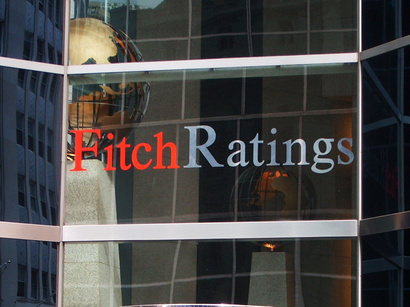ID :
244684
Fri, 06/22/2012 - 13:33
Auther :
Shortlink :
http://m.oananews.org//node/244684
The shortlink copeid
Fitch upgrades three Georgian banks’ ratings

Azerbaijan, Baku, June 22 / Trend /
Fitch Ratings has today upgraded the Viability Ratings (VRs) of TBC Bank (TBC) and ProCredit Bank (Georgia) (PCBG) to 'bb-' from 'b+', and affirmed the VR of Bank of Georgia (BoG) at 'bb-'. At the same time, the agency has upgraded TBC's Long-term Issuer Default Rating (IDR), which is driven by its standalone strength, to 'BB-' from 'B+', with a Stable Outlook. The Long-term IDRs of PCBG are affirmed at 'BB', and of BoG at 'BB-', Fitch Ratings said today.
The upgrades of TBC's and PCBG's VRs, and the affirmation of BoG's VR, reflect the three banks' high levels of capital and liquidity, providing solid buffers to absorb unexpected losses or funding outflows; currently good asset quality and performance ratios, albeit these are partly driven by the benign operating environment in Georgia and are likely to deteriorate somewhat through the cycle; and limited refinancing risk, given that international financial institutions (IFIs) are the main providers of wholesale funding.
Fitch also views favourably the quality of management and credit underwriting at PCBG, resulting in its strong and consistent track record of asset quality and performance through the crisis, and BoG's good corporate governance and disclosure standards, which it views as strong for an emerging market bank. The agency also considers that there have been significant positive improvements in the quality of governance and risk management at TBC since it suffered significant losses in 2008-2009, in part reflecting the control of the bank since then by IFI shareholders. The three banks' VRs also benefit from franchise strengths, with BoG and TBC holding dominant market shares in the Georgian banking sector, and PCBG having a strong niche in small business lending and a solid domestic deposit base.
At the same time, the ratings are constrained by relatively high sovereign risks (Georgia is rated 'BB-'/Stable) and the country's still quite low level of economic development; and the very high levels of foreign currency lending (between approximately 65% and 75% of loans at the three banks), making asset quality and capital ratios highly sensitive to a significant depreciation of the GEL. Rapid recent and planned loan growth at TBC (in particular) and BoG is also a negative factor for those banks' VRs, although risks are mitigated by still quite low levels of credit penetration in Georgia, the growing economy, a relatively transparent corporate sector and reasonable underwriting standards. PCBG's narrower franchise and size compared to its larger peers is a constraining factor for the bank's VR.
TBC's and BoG's Long-term IDRs are driven by their stand-alone strength, and are in line with their VRs. Fitch believes there is a significant probability that TBC's IFI shareholders (which have a combined 55% stake), would provide support to the bank in case of need, reflected in the bank's '4' Support rating. However, in the agency's view, there is some uncertainty as to whether co-ordinated support will always be provided in a timely fashion, and Fitch also notes that the IFIs may exit the bank within the time horizon of the Long-term ratings.
PCBG's Long-term IDRs and Support Rating reflect Fitch's view of the likelihood of support from its 100% shareholder, ProCredit Holding AG & Co. KGaA (PCH) ('BBB-'/Stable). However, PCBG's ability to receive and utilise this support could be restricted by transfer and convertibility restrictions, the risk of which is reflected in Georgia's Country Ceiling of 'BB'. Any change in Fitch's view of support available from PCH, or in the Georgian Country Ceiling, would likely result in a change to PCBG's IDRs.
Any further upgrades of the three banks' VRs, and of BoG's and TBC's Long-term IDRs, would likely require, among other things, a further sovereign upgrade (not expected by Fitch at present, as reflected in the Stable Outlook on the sovereign rating), a further reduction in domestic macroeconomic risks, continued strong bank financial metrics and a reduction in the level of foreign currency lending on the banks' balance sheets. The ratings could come under negative pressure in case of negative macroeconomic developments, or should the banks fail to maintain high capital and liquidity buffers in a relatively high risk operating environment.
BoG held 36% of sector assets at end-2011, TBC 27% and PCBG 9%. In February 2012, Bank of Georgia Holdings Plc (BGH) became the new UK-registered parent holding company of BoG and obtained a premium listing of its shares on the London Stock Exchange. TBC's shareholders include The European Bank for Reconstruction and Development (20%), International Finance Corporation (20%), Deutsche Investitions- und Entwicklungsgesellschaft mbH (DEG, 11%), FMO (3%).
Do you have any feedback? Contact our journalist at agency@trend.az





